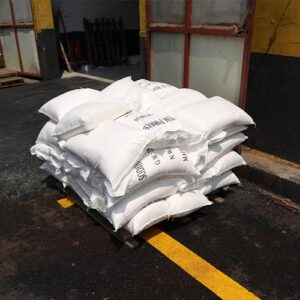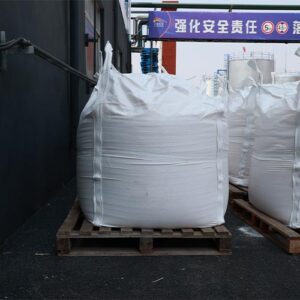Formiate de sodium is a versatile chemical compound with a wide range of applications across various industries. This substance, with the chemical formula NaCHO2, is the sodium salt of formic acid. It is known for its unique properties that make it suitable for different functions, from industrial processes to everyday consumer products. In this article, we will delve into the various applications of sodium formate and explore its significance in different fields.
- Introduction
- Applications industrielles
- Industrie du cuir
- Dyeing and Printing
- De-icing Solutions
- Oil Drilling Fluids
- Agricultural Uses
- Preservation of Silage
- Animal Feed Additive
- Other Applications
- Agent tampon
- Agent réducteur
- Concrete Accelerator
- FAQ
- Conclusion
Introduction
Formiate de sodium, due to its remarkable properties, finds utilization in a diverse array of applications. Its ability to act as a reducing agent and a buffering agent makes it an essential component in numerous processes. Let’s explore some of the key applications of sodium formate across various industries.
Applications industrielles

Industrie du cuir
One of the prominent applications of formiate de sodium is in the leather industry. It is used in the tanning process as a reducing agent and pH regulator. Sodium formate facilitates the fixation of dyes onto the leather, enhancing colorfastness and durability. Moreover, it helps prevent over-tanning and ensures the leather retains its natural texture.
Dyeing and Printing
Formiate de sodium plays a crucial role in dyeing and printing textiles. As a reducing agent, it helps improve the color absorption of certain dyes, resulting in vibrant and long-lasting shades. Its use in dye baths aids in maintaining consistent dye uptake, ensuring uniform color distribution on fabrics.
De-icing Solutions
In cold climates, sodium formate finds application as a de-icing agent for roads and runways. When mixed with other compounds, it effectively lowers the freezing point of water, preventing the accumulation of ice. Its environmentally friendly nature makes it a preferred choice over traditional chloride-based de-icing agents.
Oil Drilling Fluids
The oil and gas industry utilizes sodium formate in drilling fluids for various purposes. Its role ranges from controlling fluid density to preventing corrosion in drilling equipment. Sodium formate-based drilling fluids also offer better thermal stability, making them suitable for challenging drilling conditions.
Agricultural Uses
Preservation of Silage
Sodium formate serves as a silage preservative, aiding in the fermentation process of forage crops. When added to silage, it promotes the growth of beneficial lactic acid bacteria while inhibiting the growth of harmful microorganisms. This leads to the production of high-quality silage with improved nutrient retention.
Animal Feed Additive
Farmers often incorporate sodium formate into animal feed as an additive. It helps enhance digestion and nutrient absorption in livestock, leading to improved overall health and productivity. Additionally, the compound’s antimicrobial properties contribute to better gut health in animals.
Other Applications

Agent tampon
Sodium formate acts as a buffering agent in various chemical processes. It helps maintain a stable pH environment, preventing drastic fluctuations that could hinder the efficiency of reactions. This buffering capacity is particularly valuable in industries like pharmaceuticals and chemical manufacturing.
Agent réducteur
As a reducing agent, sodium formate finds use in several reduction reactions. It can facilitate the conversion of certain compounds into their reduced forms, playing a pivotal role in various chemical transformations and synthesis processes.
Concrete Accelerator
In the construction industry, sodium formate is employed as a concrete accelerator. When added to concrete mixtures, it speeds up the curing process and enhances the early strength development of the concrete. This proves advantageous in time-sensitive construction projects.
FAQ
Q1: Is sodium formate harmful to the environment?
A1: Sodium formate is considered environmentally friendly, especially when compared to traditional chemical compounds. It is biodegradable and does not contribute significantly to environmental pollution.
Q2: Can sodium formate be used in food products?
A2: While sodium formate has diverse industrial applications, it is not typically used in food products due to its non-food-grade nature.
Q3: Are there any safety precautions when handling sodium formate?
A3: Yes, proper safety measures should be taken when handling sodium formate, including the use of protective gear such as gloves and goggles. It should be stored in a dry and well-ventilated area.
Conclusion
Sodium formate’s versatility and unique properties have led to its widespread adoption in various industries. From leather tanning to agriculture and chemical processes, its applications are diverse and impactful. As industries continue to evolve, sodium formate’s significance is likely to grow, further showcasing its essential role in modern manufacturing and technology.


